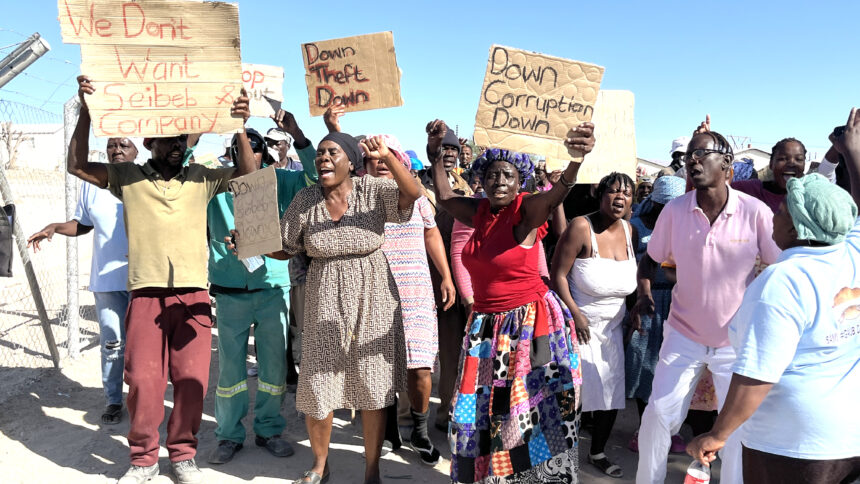UIS – A group of disgruntled people who occupied the Dâuredaman Traditional Authority office in Uis have been ordered to vacate the premises following a High Court ruling on Monday.
They had been camping at the office in protest, demanding that their chief, Sagarias Seibeb, hands over to them the keys to the office and the official stamp of the authority.
The escalating tensions prompted Chief Seibeb to seek legal recourse. According to court documents, the respondents were accused of resorting to unlawfully occupying the premises. The court heard that the protesters broke the locks to the gate leading to the office on 3 December and set up camp on the property without authorisation.
The group reportedly prevented employees of the traditional authority, including traditional counsellors, from accessing the premises.
In her ruling, Judge Esi Schimming-Chase ordered the protesters to immediately vacate the premises and restore their possession to the applicant. The court also authorised the inspector-general of Namibian Police Force (Nampol) to enforce the order.
High in their demands is for retired teacher, Issaskar Tourob, to take over the leadership of the authority, replacing Seibeb.
In a community meeting held in September this year, the group passed a vote of no confidence in Seibeb, citing the absence of community meetings over the past three years, as their main reason for disgruntlement.
Fransica Tusses, a resident of Uis, told New Era allegations of disunity, financial mismanagement, and a lack of accountability within the traditional authority were key concerns raised at the meeting.
“These concerns were discussed during the community meeting, which culminated in the decision by some members to remove Seibeb from his position,” she said.
“Nothing has improved in Uis since the chief took over. We, as a community, are tired of the lack of tangible development. Those in leadership positions do not consider the community’s needs when engaging potential investors. That is why we want the office keys and stamp to revive the structure Seibeb promised us when he assumed office,” she added.
Another elder, Daniel //Aseb, alleged that Seibeb had neglected his duties to consult and operates in isolation.
“There are no jobs for our people; our children are just sitting at home. It is time someone who can look after the interests of the community takes over,” he said.
The group’s petition also highlighted grievances, including the lack of transparency in financial dealings, alleged misuse of funds, and the chief’s failure to involve the community in key decisions. It further called for an investigation into the traditional authority’s bank accounts and fishing quotas, questioning the use of funds contributed by investors.
The protesters also accused the chief of facilitating mining and exploration activities without proper consultation, leaving residents unaware of developments affecting their area.
“Our chief allows investors to operate without following proper procedures. We see people arriving in our area, claiming to have bought land from the chief, and then starting to dig,” said Mcdonald Awaseb, one of the young protesters camping with the elders.
“It’s painful to watch minerals worth millions of dollars being shipped out of Uis while the town benefits nothing,” Awaseb lamented.
“Even our ancestral graves have been destroyed. How would the minister of mines or the chief feel if that happened to their elders’ graves?”
Meanwhile, Seibeb has vehemently denied all allegations against him.
He said no formal complaints had been filed with his office. He expressed frustration with the protesters’ refusal to engage in dialogue.
“All these allegations, I only hear them through social media, through the media, or from the ministry when they ask me to respond to documents. No one has come to my office to file a formal complaint,” he said.
Seibeb added that when he assumed leadership in 2018, the traditional authority’s financial accounts were closed.
He used his personal resources to maintain operations and later established a trust fund supported by contributions from mining companies. The trust fund, he said, has been used to sponsor young people’s education.
“This car you see here, I used it for official duties before funds were available in the trust account. For three years, I travelled to places like Swakop, Khorixas, and Ondangwa using my own money and vehicle,” he said.
-edeklerk@nepc.com.na


